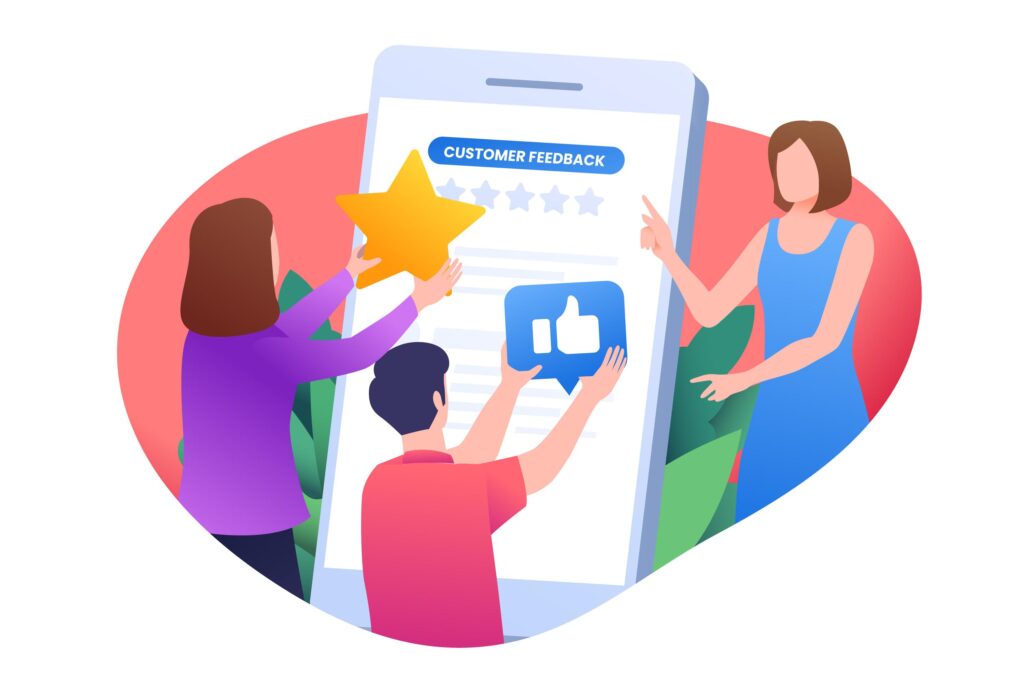In-House vs. Outsourced Sales Follow-Up: Which is Right for Your Business?
Sales follow-up is one of the most critical aspects of the sales process. Effective follow-ups keep potential clients engaged, answer their questions, and guide them toward a purchase decision. While some companies handle follow-up internally, others choose to outsource this function to dedicated professionals. Deciding whether to manage follow-up in-house or outsource can impact your business’s success. Here’s a closer look at the pros and cons of each approach to help you determine which option best suits your business goals.
1. Control and Customisation
Having control over the sales follow-up process can allow your team to tailor interactions to reflect your brand’s voice, values, and approach.
- In-House Sales Follow-Up: Managing follow-up internally provides direct control over the process, enabling you to personalise messages, tone, and communication style to align with your brand’s image. In-house teams can also quickly adapt and modify follow-up strategies as needed based on immediate feedback from prospects.
- Outsourced Sales Follow-Up: Outsourcing may limit some aspects of customisation, as the external team might not be as deeply ingrained in your brand’s culture. However, many reputable outsourcing partners take time to understand your brand and goals, working to provide a follow-up experience that aligns with your standards.
Verdict: If close brand alignment and personalisation are priorities, an in-house follow-up team provides more control. However, outsourced follow-up can still be effective with clear guidelines and a collaborative approach.
2. Cost Efficiency
Cost is always a significant factor in business decisions, and the choice between in-house and outsourced follow-up is no exception.
- In-House Sales Follow-Up: Building an in-house team for follow-up can require a significant investment, including salaries, benefits, training, and tools. For small businesses, these costs can be prohibitive, particularly if your follow-up process requires specialised training or software.
- Outsourced Sales Follow-Up: Outsourcing follow-up is typically more affordable, as you only pay for services rendered without the additional overhead of salaries and benefits. Many outsourcing companies offer flexible pricing models, which can be advantageous if your follow-up needs fluctuate.
Verdict: For companies looking to keep costs low and avoid long-term commitments, outsourcing follow-up is usually the more economical choice.
3. Speed and Flexibility
When it comes to sales follow-up, timing is essential. Prospects expect quick responses, and a delayed follow-up can lead to missed opportunities.
- In-House Sales Follow-Up: In-house teams are part of your business and can respond quickly to follow-up tasks without needing to communicate externally. However, scaling an in-house team to handle sudden increases in follow-up tasks can be time-consuming and costly.
- Outsourced Sales Follow-Up: Outsourcing allows for greater flexibility and scalability. Many outsourcing providers are equipped to handle spikes in demand and can quickly adapt resources based on your needs. This scalability is particularly useful for companies with seasonal demand or variable sales cycles.
Verdict: For businesses with fluctuating follow-up needs, outsourcing offers the flexibility to scale up or down efficiently, while in-house teams may provide quicker responses in smaller, steady environments.
4. Expertise and Specialisation
Sales follow-up requires skill in nurturing leads, handling objections, and guiding prospects through the decision-making process. For many companies, choosing between in-house and outsourced follow-up depends on the level of expertise available.
- In-House Sales Follow-Up: Your in-house team is already familiar with your products, services, and company culture. They understand your business’s unique value proposition and can communicate it effectively. However, in-house teams may lack specialised follow-up skills if they are also responsible for other sales functions.
- Outsourced Sales Follow-Up: Sales follow-up outsourcing companies typically have specialised teams trained in lead nurturing and follow-up techniques. These professionals bring experience in overcoming objections, relationship-building, and closing sales, which can enhance follow-up quality and effectiveness.
Verdict: If you need specialised expertise to boost follow-up results, outsourcing offers access to skilled professionals focused solely on effective follow-up.
5. Access to Technology and Tools
Effective follow-up often relies on technology, from CRM systems to automation tools. Depending on your budget and resources, access to these tools may vary.
- In-House Sales Follow-Up: Managing follow-up internally means you need to invest in CRM systems, email automation tools, and other sales enablement software. While these tools enhance follow-up efficiency, the costs can add up, especially for small businesses.
- Outsourced Sales Follow-Up: Outsourcing partners usually have advanced technology in place, from CRMs to analytics tools, making follow-up more streamlined and data-driven. This access to technology without the need for direct investment is a significant advantage, particularly for companies without the resources to invest in costly software.

Verdict: If advanced technology and data analytics are important to your follow-up strategy, outsourcing provides immediate access to the latest tools without the need for upfront investment.
6. Data and Performance Insights
Tracking the performance of follow-up efforts is essential to refine the approach, improve conversion rates, and better understand customer needs.
- In-House Sales Follow-Up: An in-house team allows for complete control over data collection and analysis. You can customise your metrics, track performance, and adjust based on insights. However, gathering and interpreting data may require additional resources, particularly if your team lacks experience in analytics.
- Outsourced Sales Follow-Up: Many outsourced providers offer regular reports and data-driven insights, helping you monitor conversion rates, response times, and follow-up effectiveness. These insights can lead to continuous improvement without requiring additional resources.
Verdict: For companies seeking data-driven improvements without the need for internal analytics expertise, outsourcing provides valuable insights and transparent reporting.
7. Customer Experience and Relationship Building
Follow-up is not just about closing sales – it’s an opportunity to build relationships and enhance the customer experience. A personal approach can help create lasting connections and brand loyalty.
- In-House Sales Follow-Up: In-house teams may have an advantage when it comes to building relationships with prospects, as they’re more closely connected to the company’s values and mission. This familiarity can lead to a more personal and authentic customer experience.
- Outsourced Sales Follow-Up: While outsourced teams may not be as closely tied to your company culture, experienced providers make it a priority to understand your brand voice and values. With the right guidelines, outsourced teams can still create a positive, consistent experience for prospects.

Verdict: For companies focused on building long-term relationships, an in-house follow-up team may be preferable. However, a well-trained outsourced team can still deliver a great customer experience with the right training.
8. Time to Market
For companies launching new products, services, or campaigns, the speed and efficiency of the follow-up team can significantly impact success. If you need to engage prospects quickly, the structure of your follow-up team can make a difference.
- In-House Sales Follow-Up: In-house teams may require additional training or preparation for new launches, which could slow down follow-up efforts if they aren’t already familiar with the new offering. However, they have the advantage of being immediately accessible and can respond to management quickly.
- Outsourced Sales Follow-Up: Outsourced providers typically have the infrastructure and experience to ramp up quickly. They can deploy trained professionals familiar with follow-up best practices, allowing for faster response times and quicker engagement.
Verdict: For quick engagement on new launches, outsourcing offers a faster ramp-up, while in-house teams may require more time to prepare.
Conclusion: Choosing Between In-House and Outsourced Sales Follow-Up
Both in-house and outsourced sales follow-up have their strengths, and the right choice depends on your business’s unique needs, goals, and budget. An in-house follow-up team offers more control, brand alignment, and direct access, which can be beneficial for companies focused on a personalised approach to customer relationships. In contrast, outsourcing provides flexibility, scalability, access to specialised expertise, and advanced technology, making it an attractive choice for companies looking to optimise efficiency and reduce costs.
Ultimately, both options can be effective with the right strategy and implementation. If your business is ready to explore the benefits of outsourcing follow-up to enhance customer engagement and improve conversion rates, Wingmen Consulting can help. Book a Free Sales Consultation today to learn how our team can support your follow-up needs and drive growth. Schedule Your Free Consultation with Wingmen Consulting and take the first step toward a streamlined, high-impact follow-up strategy.
